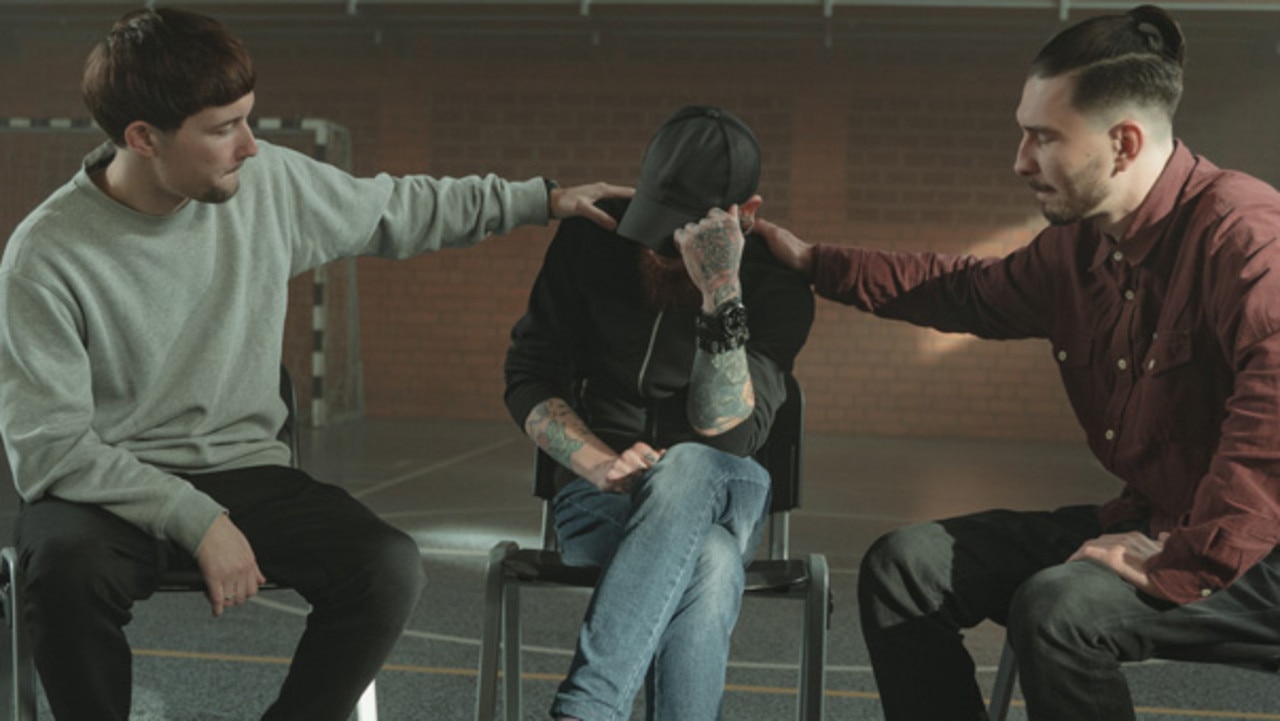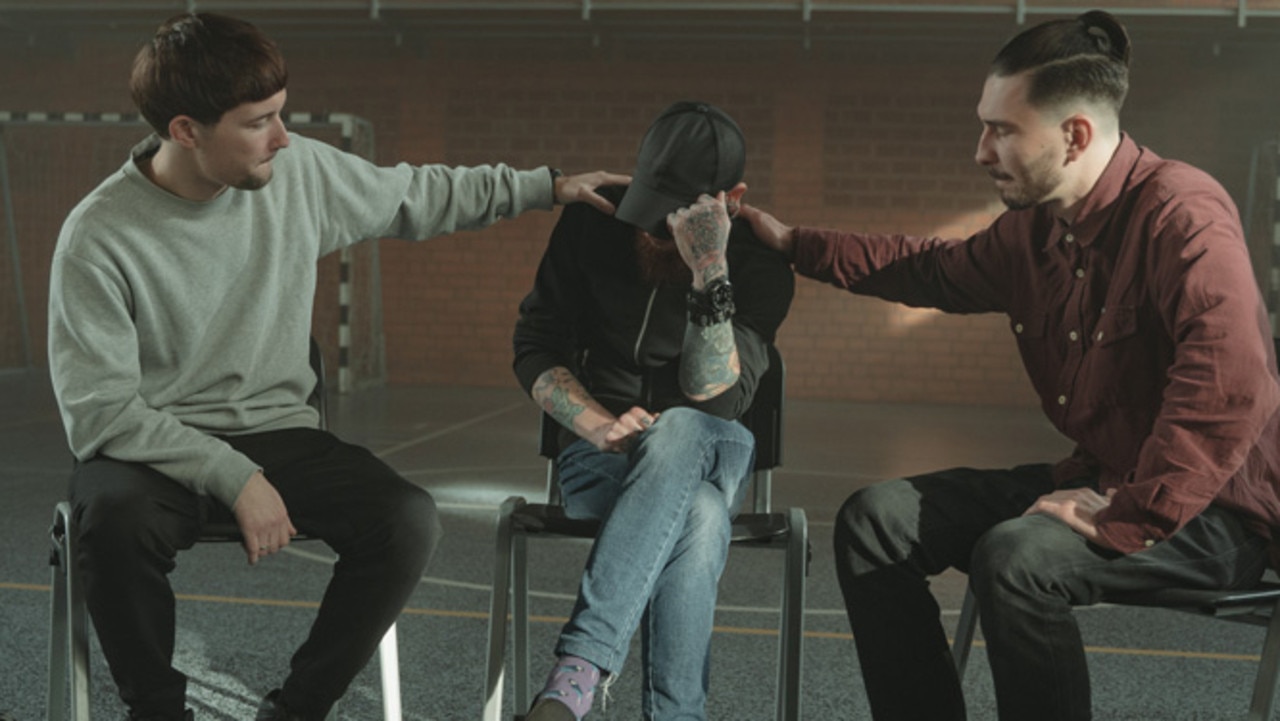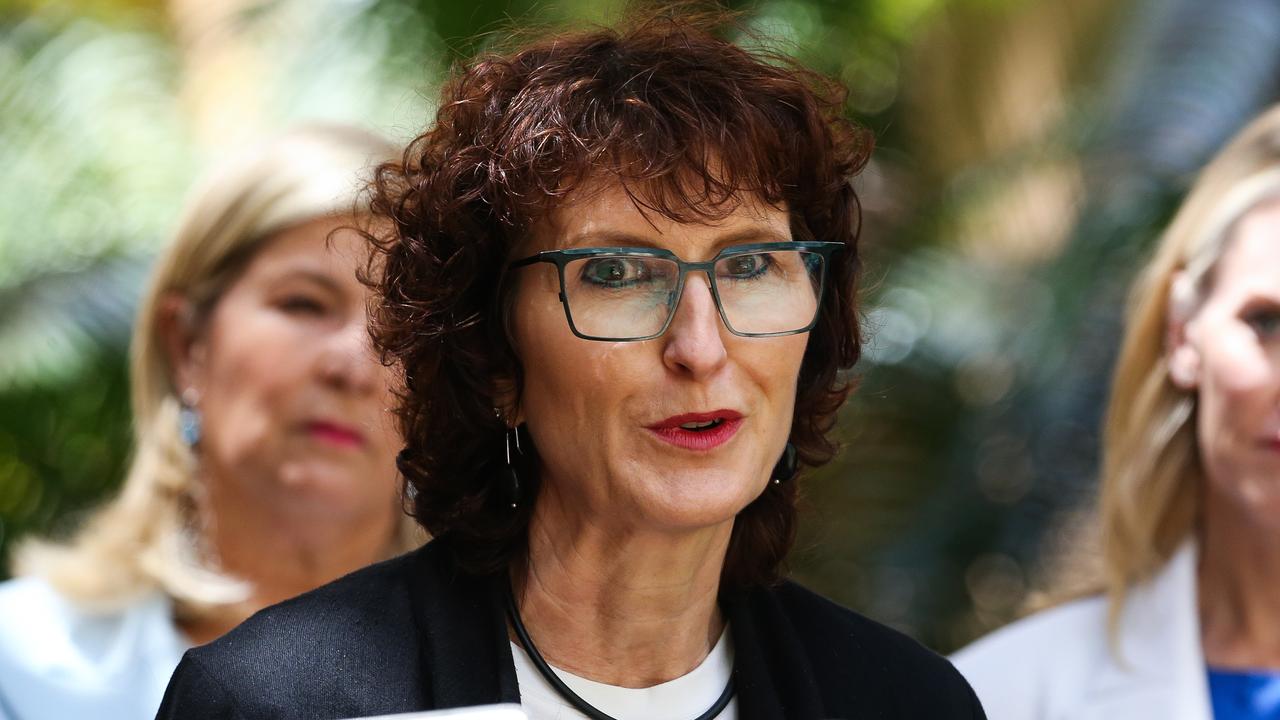Scary Australian crisis killing women every week
Harrowing details have been revealed from within rooms full of men behind a scary Australian crisis.

“Men are scared women will laugh at them. Women are scared that men will kill them.”
This infamous quote from novelist Margaret Atwood is being confronted head on by men tackling belief systems that have historically driven them to hurt and abuse their partners.
These men – either voluntarily or mandated by court – take a mirror to themselves in an intensive program run by Relationships Australia, throughout which they undergo both group and individual work.
“We are in a crisis when it comes to domestic violence,” Relationships Australia’s family safety programs manager, Sian, told news.com.au.
“In Australia, women are being killed on a weekly basis by their intimate partners, and that’s a major social issue that we need to get on top of.”
The 18-week Taking Responsibility men’s behaviour change program is an “extremely important intervention” if Australia is to get to “the root cause of the problem”.
“Which is that there are many men in relationships with female partners who are using power and control and abuse and violence,” Sian, who preferred to use her first name only, said.
Domestically violent men were disguised within all groups in society. They don’t have a particular job, appearance, hobby or family background, but their behaviours likely have a lot to do with how they have been socialised, Sian said.
“Domestic violence doesn’t discriminate, it isn’t a particular group or people that tend to use violence in their relationships, there are a number of contributing factors.

“One of those, I think, is the way men are socialised in our society and the sociocultural values around gender and gender roles. They have a love to do with the development of attitudes about relationships and towards women.”
Blame, denial, defensiveness, minimising the violence and justifying violence were common themes among men in the early stages of their engagement with the program, Sian explained.
Highly skilled staff were however trained to recognise those patterns and guide men into a more “authentic and vulnerable space”.
“There is a lot of childhood trauma and alcohol and drug issues for some of our clients,” she said, adding it wasn’t those issues causing the violence, but they did “exacerbate or increase the risk around violent behaviour”.
A common thread among clients, Sian had observed, was that patriarchal values and behaviours men had absorbed, didn’t actually align with the type of people they wanted to be.
“Ironically, when you get down to their core values like who they want to be in society and in relationships as a partner and as a father – it’s not aligned. Those patriarchal values are actually not representative of who they want to be,” she said.
“It’s where they’ve landed as a result of what they’ve been exposed to and how they’ve been socialised.
“We do a lot of work to support people in challenging those stereotypes in the course of their work.”
‘Stakes have become very high’
While some men end up in behaviour change programs as an outcome of criminal activity, for many, the course of action follows a pivotal moment where an act has created fear they would lose their job or access to their partner or children.
“Usually it is because the stakes have become very high and the man feels like he has to do something or he’ll lose even more,” Relationships Australia CEO Elisabeth Shaw told news.com.au.
Ms Shaw said crucial support was offered to female victims of abusive partners too, given that despite often having a laundry list of reasons to leave, many were likely to stay in the relationship.

During the course of the man’s engagement in the behaviour change program, at least three attempts were made to contact and offer support to their current and former partners.
“The reality is, a lot of men are going to stay living with these partners or they’re going to re-partner and they need intervention, because the evidence is this behaviour doesn’t change without professional intervention,” Ms Shaw said.
The family safety program has four sites, including one in Newcastle, Wollongong, Sydney city, and an online service for people in rural and remote areas.
The Taking Responsibility course is an 18-week rolling program, designed to reduce the volume of people that might drop off if they miss a cut-off.
Ms Shaw said her “greatest concern” was men being dissuaded by the waiting period to an extent where the “window of opportunity” passes and they convince their partner they don’t need support anymore but ultimately end up perpetuating the abuse.
“That’s when they end up in a cycle,” she explained.
“For women, they can end up feeling further trapped and that nothing’s ever going to be different.”
For men who completed the program, rehabilitation was a strong likelihood, Sian stressed.
“I have seen enormous transformation. I’ve seen people who have had their children removed from their care and have been able to rebuild safety and keep their family together,” she said.
“I’ve seen people who have completed the behaviour change program and managed to keep their relationship intact and gone on to work in the field and support other men in similar situations who want to change.”
brooke.rolfe@news.com.au






